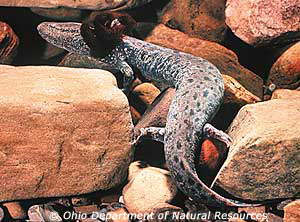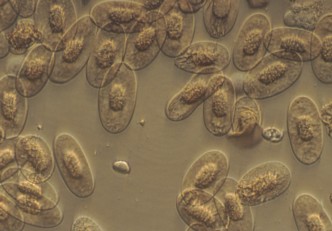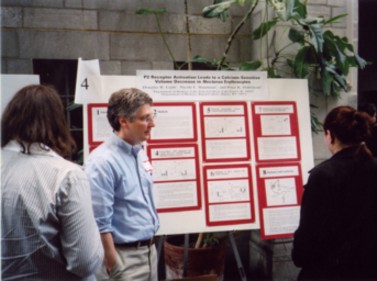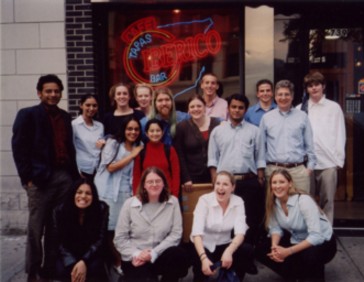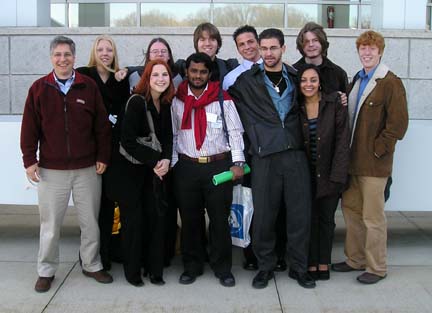
Home | Teaching | Research | Publications | Curriculum Vitae | Personal Interests
Research Interests
|
(www.dnr.state.wi.us/.../ amphibian/mudpuppy.htm) |
"For a large number of physiological problems there will be some organism of choice, or a few such organisms, in which it can be most conveniently studied." August Krogh (1874-1949).
Necturus erythrocytes, DIC optics |
Necturus erythrocytes, fluorescence with fluo-4 |
I study animal physiology, mainly focusing on membrane transport mechanisms and signal transduction processes at the cellular level. Currently, I am investigating the physiological basis of cell volume regulation in vertebrate red blood cells. Although the ability of cells to regulate their volume is one of the oldest regulatory mechanisms from an evolutionary standpoint, little is known about the processes that underlie this phenomenon. To elucidate this topic, my research incorporates several complementary experimental approaches: hemolysis experiments to examine osmotic fragility, electronic sizing of cells to determine their volume, fluorescence to monitor intracellular calcium, and patch clamping to directly study the properties and regulation of ion channels.
I also am interested in examining overwintering adaptations in ectothermic animals. Terrestrial ectotherms inhabiting temperate and arctic regions are challenged by seasonal cold that poses a severe threat to survival. "Freeze tolerant" frogs survive subzero ambient temperatures by allowing their extracellular fluid to freeze (a remarkable adaptation!). Studies in my laboratory will address the role of cell volume regulation in freeze tolerant amphibians.
Chicago Signal Transduction Symposium |
D. Light & S. DebBurman labs |
15th Annual Argonne Undergraduate Symposium in Science (Students from Lake Forest College) |
Ethan presenting at Argonne
Louise presenting at Argonne |
